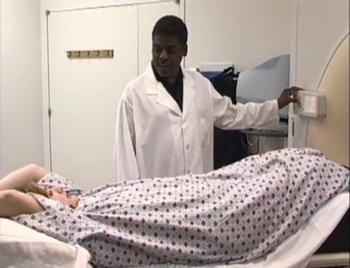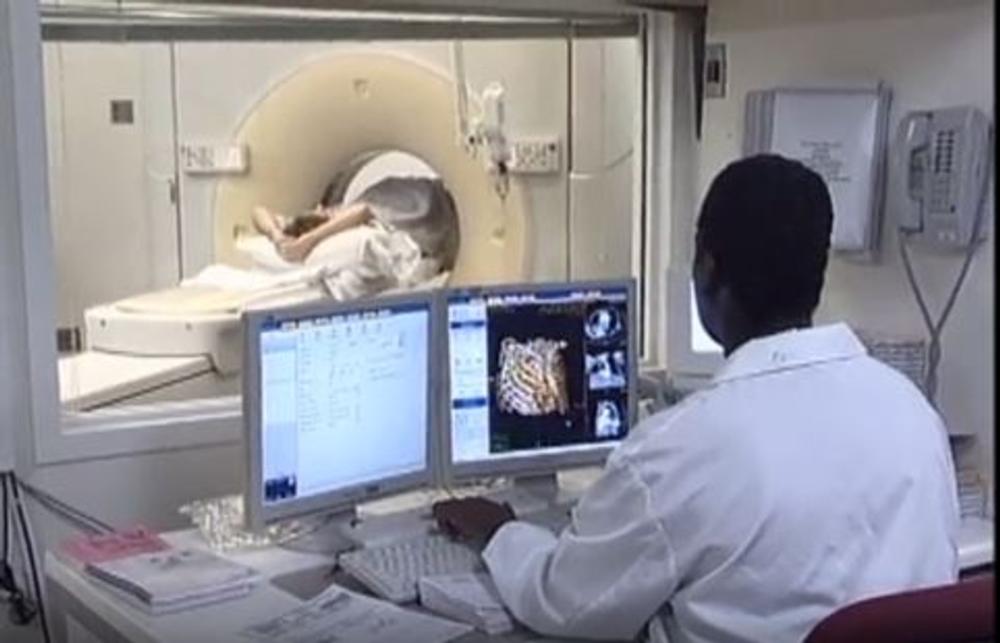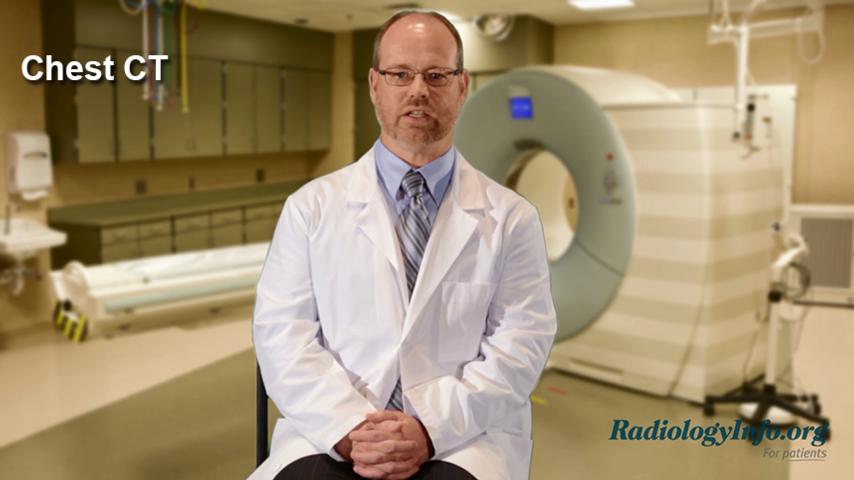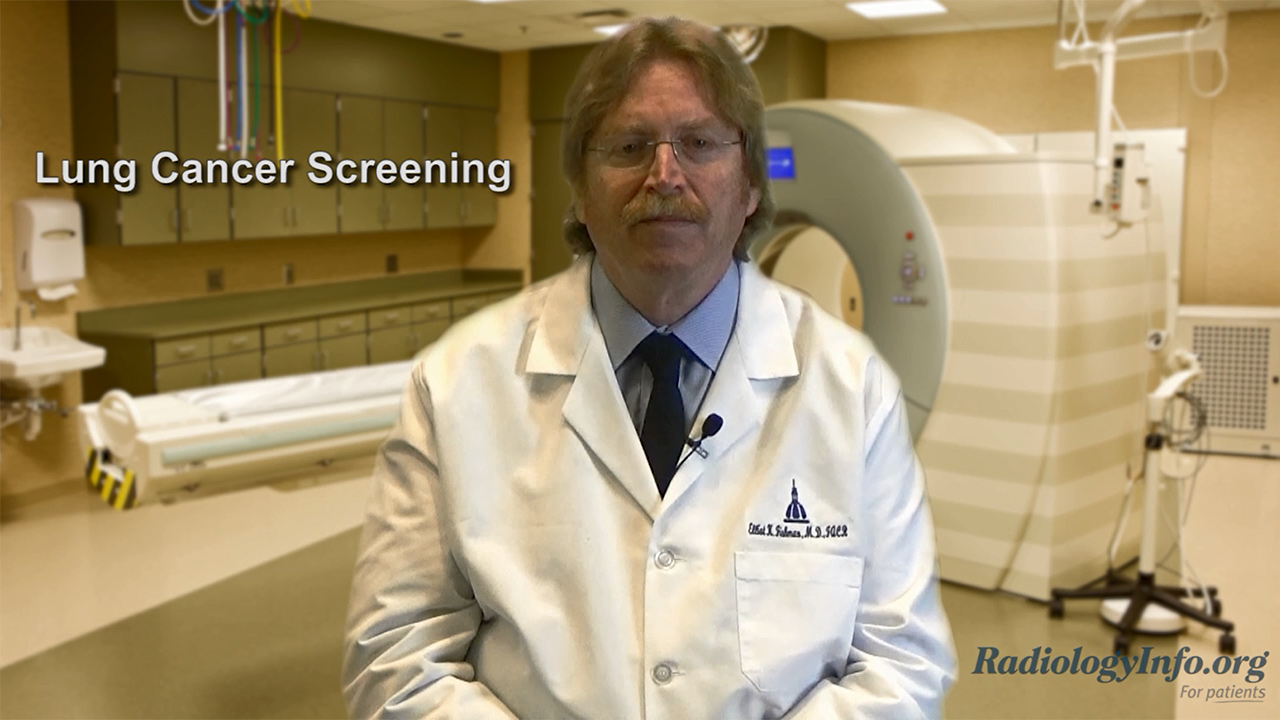AI Helps Find Signs of Heart Disease on Lung Cancer Screens
Released: December 03, 2019
At A Glance
- Researchers trained an artificial intelligence system to measure coronary artery calcium in patients getting chest CT scans to screen for lung cancer.
- Coronary artery calcium is an important marker of heart disease.
- There was a significant association between calcium scores and death from heart disease over follow-up of 6.5 years.
- RSNA Media Relations
1-630-590-7762
media@rsna.org - RSNA 2019 Newsroom
(Dec. 1-5, 2019)
1-312-791-6610 - Linda Brooks
1-630-590-7738
lbrooks@rsna.org
CHICAGO — Artificial intelligence (AI) provides an automated and accurate tool to measure a common marker of heart disease in patients getting chest CT scans for lung cancer screening, according to a study presented today at the annual meeting of the Radiological Society of North America (RSNA).
Low-dose chest CT is approved for lung cancer screening in high-risk people, such as long-time smokers. While these CT scans are intended to diagnose lung cancer, coronary artery calcium, a measure of plaque in the arteries, is also visible on CT. The coronary artery calcium score derived from CT is a well-established measure that helps doctors decide who should get cholesterol-lowering preventive medications called statins.
"The new cholesterol guidelines encourage using the calcium score to help physicians and patients decide whether to take a statin," said study co-senior author Michael T. Lu, M.D., M.P.H., director of AI in the Cardiovascular Imaging Research Center (CIRC) at Massachusetts General Hospital (MGH) in Boston. "For select patients at intermediate risk of heart disease, if the calcium score is 0, statin can be deferred. If the calcium score is high, then those patients should be on a statin."
Despite its prognostic value, coronary artery calcium is not routinely measured in low-dose CT lung screening, as the measurements require dedicated software and add time to the interpretation.
"If our tool detects a lot of coronary artery calcium in a patient, then maybe we can send that patient to a specialist for follow up," said lead author Roman Zeleznik, M.Sc., B.Sc., from the Artificial Intelligence in Medicine (AIM) Program at Boston's Brigham and Women's Hospital (BWH) and Dana-Farber Cancer Institute. "This would make it easier for patients to get appropriate treatment."
The research team, which represents a close collaboration between MGH's CIRC and AIM at BWH, recently developed and tested a technique that uses deep learning, a sophisticated type of AI, to automatically measure coronary artery calcium on chest CT images. They trained the deep learning system on cardiac CTs and chest CTs in which the coronary artery calcium had been measured manually. They then tested the system on CT scans from thousands of heavy smokers, age 55-74, who were part of the National Lung Screening Trial (NLST), a major study that established CT's value in providing early detection of lung cancer.
The results showed that the deep learning-derived coronary artery calcium scores corresponded closely to those of human readers. In addition, there was a significant association between deep learning calcium scores and cardiovascular death over follow-up of 6.5 years.
"There's information about cardiovascular health on these CT scans," Dr. Lu said. "This is an automated way to extract that information, which can help patients and physicians make decisions about preventative therapy."
For instance, automated coronary calcium quantification could be used to segregate people into high- and low-risk groups.
The deep learning system runs in the background and adds no time to the exam. The system's ability to automate coronary calcium assessment could be a boon to research, as it can evaluate large numbers of patients in a much less time than it would take human readers.
It could also have value outside of the lung screening population. The research team has already demonstrated its effectiveness in people with stable and acute chest pain.
"We have a tool that in the future can be used on almost every chest scan to generate very clinically relevant information for a large number of patients," said study co-senior author Hugo Aerts, Ph.D., director of the AIM Program at BWH.
The research team has already demonstrated similar results in clinical trial populations in patients with stable (PROMISE Trial) and acute (ROMICAT trial) chest pain.
Co-authors are Borek Foldyna, M.D., Parastou Eslami, Ph.D., Jakob Weiss, M.D., Alexander Ivanov, B.S., Chintan Parmar, Ph.D., Jana Taron, M.D., Julia Karady, M.D., Lili Zhang, M.D., Raza Alvi, M.D., Yasuka Kikuchi, M.D., Dahlia Banerji, M.D., Mio Uno, M.D., Jan-Erik Scholtz, M.D., and Udo Hoffmann, M.D., M.P.H.
Note: Copies of RSNA 2019 news releases and electronic images will be available online at RSNA.org/press19 beginning Monday, Nov. 25.
RSNA is an association of over 53,400 radiologists, radiation oncologists, medical physicists and related scientists, promoting excellence in patient care and health care delivery through education, research and technologic innovation. The Society is based in Oak Brook, Ill. (RSNA.org)
Editor's note: The data in these releases may differ from those in the published abstract and those actually presented at the meeting, as researchers continue to update their data right up until the meeting. To ensure you are using the most up-to-date information, please call the RSNA Newsroom at 1-312-791-6610.
For patient-friendly information on chest CT, visit RadiologyInfo.org.
Video (MP4):
Images (JPG, TIF):
Additional Links:






